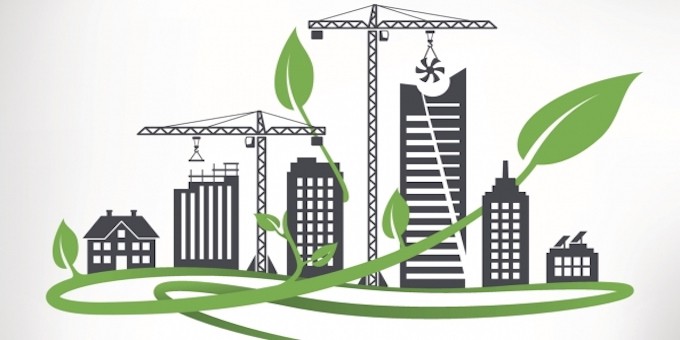Contemporary Green Construction Solutions
Green construction has become a crucial aspect of the modern building industry. With the increasing awareness of environmental issues, architects, engineers, and contractors are now adopting contemporary green construction solutions to minimize the environmental impact of buildings. These solutions focus on energy efficiency, sustainable materials, and renewable energy sources.
Energy Efficiency
One of the key aspects of contemporary green construction solutions is energy efficiency. Buildings are designed to reduce energy consumption through insulation, efficient heating and cooling systems, and the use of energy-efficient appliances and lighting. The integration of smart technology allows for better control and optimization of energy usage.
Furthermore, passive design strategies, such as the orientation of buildings to maximize natural lighting and ventilation, are also employed. This reduces the reliance on artificial lighting and mechanical ventilation systems, resulting in lower energy consumption.
Sustainable Materials
Another important aspect of contemporary green construction solutions is the use of sustainable materials. Traditional construction materials, such as concrete and steel, have a significant environmental impact due to their extraction and production processes. In contrast, sustainable materials, such as recycled steel, bamboo, and reclaimed wood, are eco-friendly alternatives.
These materials not only have a lower carbon footprint but also promote the efficient use of resources. Additionally, the incorporation of green roofs and walls helps to reduce heat absorption, improve air quality, and provide insulation, further enhancing the sustainability of a building.
Renewable Energy Sources
Utilizing renewable energy sources is a crucial component of contemporary green construction solutions. Buildings are designed to incorporate solar panels, wind turbines, and geothermal systems to generate clean energy on-site. This reduces dependence on fossil fuels and contributes to a greener and more sustainable future.
Renewable energy systems not only provide electricity but can also be used for heating, cooling, and water heating purposes. By harnessing the power of nature, buildings can operate more efficiently and reduce their carbon footprint.
In conclusion, contemporary green construction solutions are revolutionizing the building industry by prioritizing energy efficiency, sustainable materials, and renewable energy sources. These practices not only benefit the environment but also result in cost savings for building owners in the long run. As awareness and demand for sustainable buildings grow, the adoption of green construction solutions will continue to increase, paving the way for a more environmentally conscious future.
